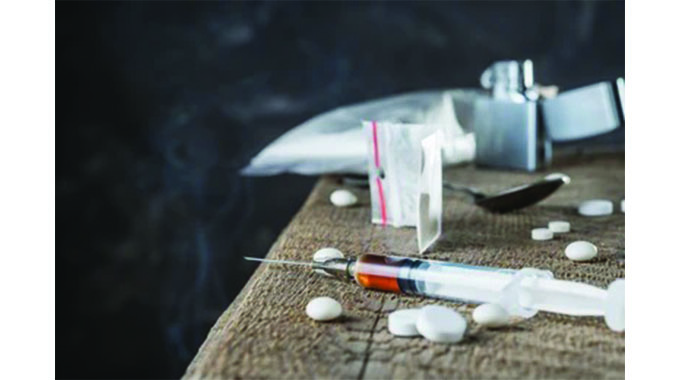
The Sunday News

Simba Jemwa, Sunday News Correspondent
IT looks cool on television or social media — media portrayals of substance use. Speaking at a workshop organised by local varsity and college students in Harare last week, Mr Tongai Mutemi an anti-drug activist said youths were being influenced to do drugs by perceptions of “cool” lifestyles portrayed by the media.
Mr Mutemi said youths’ attitudes around substance use were influenced very early in life by media portrayals of substance use. The positive associations formed at a young age may be predisposing to early substance use with a concomitant increase in problematic use.
“Being aware of this pervasive influence is an important first step to countering its ill effects. Mass media and social media accounts of drugs and drug use are a daily occurrence and the focus of much inquiry and debate.
The role and impact of a specific type of mass medium in the depiction of drugs, drug use, and drug users has come under the spotlight as Zimbabwe battles to contain a growing drug and substance a use scourge among the youth.
“Media includes television programmes, newspapers, films, public service advertising and product-specific marketing campaigns, and the world of the internet, including YouTube and message boards.
Media accounts of alcohol, tobacco, marijuana, and prescription drugs such as antidepressants, and more broadly, drug abuse and addictions must now be examined through a variety of methods from the humanities and social sciences,” said Mr Mutemi speaking at the workshop.
The early stages of substance use are strongly influenced by environmental risk factors. Digital media now surpasses traditional marketing for most adolescents and young adults, and in this context, social media placements are overtaking overt advertisements and media product placements.
The anti-drug advocate said although the influence of advertising has been studied mostly for tobacco and alcohol, the conclusions from these studies can be extended to other forms of substance use and other types of portrayals, such as that seen in peer-to-peer exposure through social media.
“A review of the current situation on how media and marketing affect substance use behaviour in teen and young adults could be a key factor and may help make recommendations regarding evolving social media exposure to substance use.
There is a need for studies that will provide a descriptive review of the state of our society and the effects of substance use portrayals in marketing and media, focused on tobacco, alcohol, e-cigarette and cannabis content during the pre-adolescent, adolescent and young adult years,” he added.
Steve Hamandishe (not real name) a survivor of drug and alcohol abuse, also shared his life experience at the drug and substance abuse workshop.
The attendants were taken aback when Steve revealed that he was pronounced clinically dead three times, spent time in a psychiatric institution and a couple of drug rehabilitation centres, has been imprisoned twice and lost many friends to drugs and alcohol.
Hamandishe’s psychodrama began at the age of 15 years where he spent much of his youth and young adulthood fighting his personal battle with drug addiction.
He was expelled from school in Form Three and armed with a criminal record for possession of dagga and other illegal substances, including dealing and was later thrown out of the family home in Mufakose by his parents.
During his estrangement from his family, he continued to take drugs and supplied them to other users. Hamandishe was then sent to his rural home of Mutoko until his drug-induced experiences further traumatised him and led him to a spell in a psychiatric ward in Harare.
After this spell in a psychiatric ward, he was eventually released after 90 days and he began to slum it out in the Avenues. Here, he moved deeper and deeper into the drugging underworld. Hamandishe’s drug abuse, drug dealing and lack of education and skills provided no assistance to him finding employment.
Five years ago, he was admitted to his last rehabilitation centre at age 23. Since then, it became his personal crusade to help people fight the war against addiction.
“I needed to make a choice. I wanted my life back,” said Hamandishe as he explained his next venture into recovery.
Hamandishe is working with a “ghost writer” to write a book about his addiction. Titled ‘Can I Get My Life Back’, he is hoping this book will help other drug addicts to recover from this pandemic.
“One is too many and a thousand is never enough,” was on everyone’s minds and tongues at the end of the programme. Hamandishe’s graphic analogies kept the audience on their toes as he made a point to drive home what drugs and alcohol did to him.
During a demonstration with the audience, Hamandishe said: “The first choice you made without thinking. The second, some of you cheated and the third, most paused and then thought about it.”
Attendants to the workshop were weary, only to realise the dangers of making hasty decisions thereafter. Hamandishe hopes to become a recognised authority on chemical abuse, and begin to appear regularly on radio, television and media publications in his fight against drug abuse.
In addition, Hamandishe hopes to begin working continually in schools, colleges and companies.



